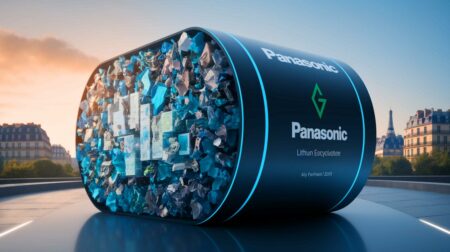There’s a new approach to plastic waste that’s set to launch in France and the United States next month, with some of the planet’s biggest brands on board to help consumers make a zero-waste transition.
The Loop™ shopping system rolls out in Paris on May 14, and then a week later in a U.S. regional cluster that includes the states of New York and Pennsylvania, as well as New Jersey, the home of the international recycling giant TerraCycle that’s behind the project.
The Loop idea moves beyond consumer-product container recycling and sends them back to the original manufacturers instead, keeping all of that trash out of the landfills and oceans. Plastic already has a historically low recycling rate when compared with aluminium or glass, even as China and other nations are refusing to accept waste. Since it’s not biodegradable, it’s clear recycling isn’t a solution but less plastic is.
So companies partnering with Loop will accept the empty containers when you’re done, then safely reuse them for the same product up to 100 times, refilling them with shampoo or bleach or pet food. They’re returned by a free pickup from your home, or in some cases at the stores where you shop.
France’s grocery chain Carrefour is a founding partner, and Tesco in the UK plans to pilot the Loop system later this year. Manufacturers including Procter & Gamble, Unilever, Mondelēz International and Coca-Cola European Partners all have signed on so that their customers can participate. So has the UPS delivery giant, and Suez, a Paris-based water and waste management leader. Between 20 and 30 countries, including Germany, Mexico and South Korea, are interested in Loop.
“Loop will not just eliminate the idea of packaging waste, but greatly improve the product experience and the convenience in how we shop,” said TerraCycle CEO Tom Szaky. “Through Loop, consumers can now responsibly consume products in specially-designed durable, reusable or fully recyclable packaging made from materials like alloys, glass and engineered plastics.”
For now, Loop customers can go to the English or French websites – or to the retail partners – and shop online for the same brands packaged in the new waste-free containers. They’re shipped in a Loop tote bag so there’s no cardboard or plastic packaging peanuts in a box, and when they’re done customers put the empties back into one of their Loop totes for pickup.
There are 300 products available in the trial phase, most of them without any price increase to cover the container redesign. Because the containers are more durable, there is also a refundable deposit on them that’s meant as an incentive so that people who buy ice cream also send the container back.
The entire point is to create circular life for the materials and a zero-waste option for consumers who increasingly hold corporations accountable for their climate impacts.
TerraCycle and its partners will be looking to see who participates in Loop purchasing. They say it’s designed for the mainstream culture and not just people already immersed in sustainable living. It’s also meant to be as convenient as possible so that for end users, sending the plastic containers back to the company is just as easy as sending them to the recycling bin.
Did you like it? 4.5/5 (20)









